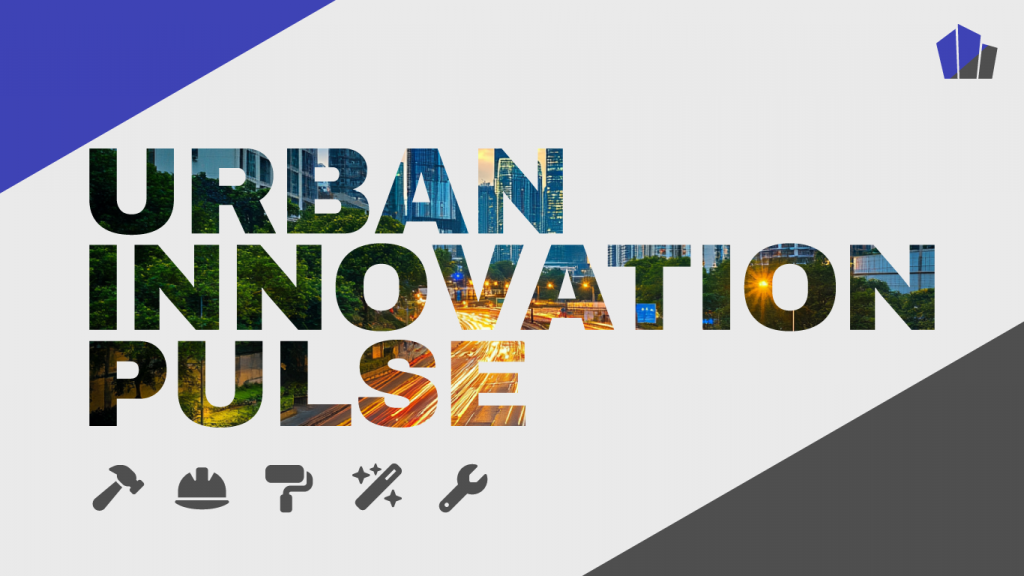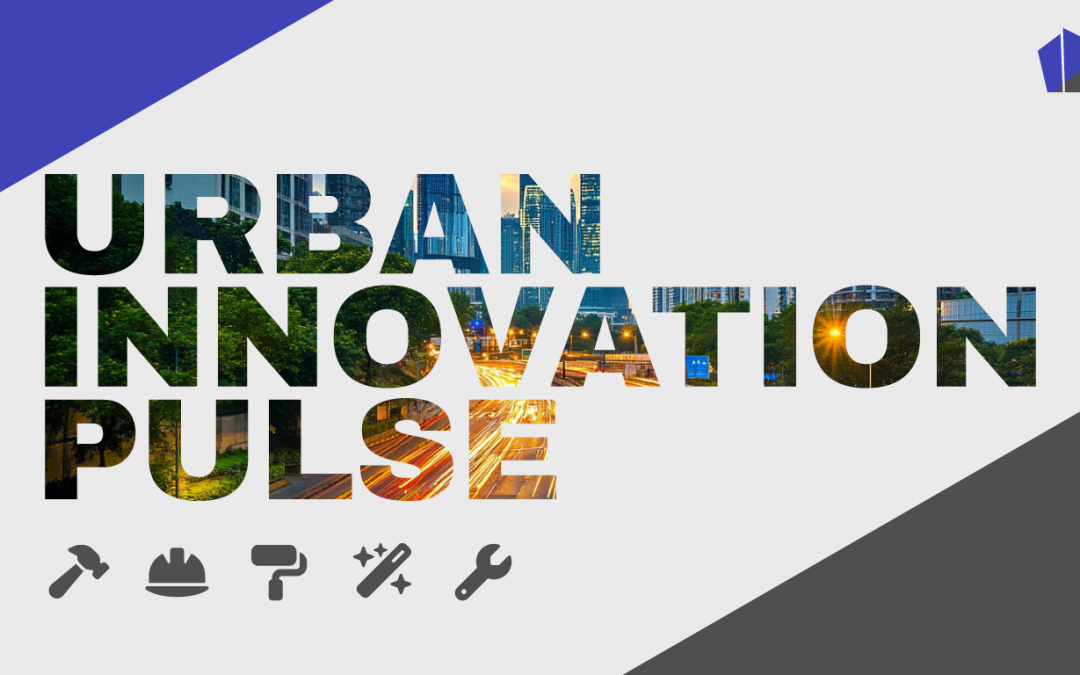
Urban innovation continues to evolve, addressing challenges and enhancing city living through technological advancements and strategic initiatives. Here are some recent developments:
Smart Buildings and Sustainable Architecture
- Energy-Efficient Designs: Shanghai is integrating nature into its urban landscape, implementing green corridors, rooftop gardens, and vertical forests to reduce temperatures and improve public health.
- Innovative Energy Storage: Andrea Pedretti’s Gravity Energy Storage Solution (GESS) offers long-duration renewable energy storage by lifting heavy blocks with surplus green energy and lowering them to generate electricity, potentially integrating into tall buildings to reduce urban carbon footprints.
Smart Cities and Urban Development
- Strategic Partnerships: L&T Technology Services has partnered with the Colorado Smart Cities Alliance to advance smart city projects, focusing on engineering solutions to enhance urban living.
- Climate Resilience Initiatives: The Smart City Expo emphasizes the need for climate resilience in urban development, advocating for technological innovation and collaboration to address urban challenges.
Advanced Materials and Construction
- 3D-Printed Footwear: Companies like Zellerfeld are leading in 3D-printed sneakers, offering complex designs and personalized fits, potentially revolutionizing the footwear industry.
- Urban Farming Integration: The Forestville development in Adelaide plans to incorporate a rooftop urban farm, blending residential spaces with sustainable agriculture to create a vibrant community hub.
Emerging Concepts and Innovations
- Urban Innovation Hubs: Cambridge is accelerating its production of billion-dollar tech companies, aiming to enhance venture capital availability and attract multinational companies to maintain its global innovation leadership.
- Creative City Models: Tbilisi is embracing the ’creative city’ concept, fostering innovation and economic growth by integrating creativity into urban development strategies.
These developments highlight the dynamic nature of urban innovation, focusing on sustainability, technological integration, and community-centric growth to create resilient and thriving urban environments.
Weekly Update on Smart City Technology
1. AI-Powered Infrastructure Enhancements
- Sydney’s AI-Driven Pothole Detection: Sydney has implemented artificial intelligence to proactively identify and repair potholes, significantly improving road safety and reducing vehicle damage.
- NYPD’s Drone Deployment: The New York Police Department has expanded its surveillance capabilities by deploying drones equipped with thermal sensors, enhancing operational efficiency and officer safety.
2. Autonomous Vehicle Developments
- San Francisco’s Self-Driving Car Expansion: Zoox, an Amazon-owned company, has introduced a new fleet of self-driving cars in San Francisco, contributing to the city’s autonomous vehicle testing initiatives.
- Sydney’s Autonomous Vehicle Trials: The New South Wales government is investing in two-way traffic communication software for autonomous vehicles, aiming to improve traffic light coordination and pedestrian safety in Sydney.
3. Smart Retail Innovations
- Coles’ AI-Powered Shopping Trolleys: Australian retailer Coles is set to trial AI-enabled smart trolleys that scan, weigh, and bag groceries, allowing customers to bypass traditional checkouts and enhancing the shopping experience.
4. Global Smart City Initiatives
- Bhutan’s ’Mindfulness City’ Project: Bhutan is planning to build the ”Gelephu Mindfulness City,” focusing on eco-friendly infrastructure and mindfulness-based education to attract investment and create jobs.
- North Carolina’s Smart City Collaboration: L&T Technology Services has announced a strategic collaboration with the Colorado Smart Cities Alliance to drive innovation and technology integration in smart city development projects across Colorado.
5. Technological Challenges and Considerations
- UK’s Smart Meter Connectivity Issues: Approximately 3.5 million smart meters in the UK are experiencing connectivity problems due to technological disparities between regions, affecting accurate billing and access to cheaper energy tariffs.
- AI-Controlled Traffic Lights in Solihull: Solihull, West Midlands, is testing AI-controlled traffic lights that prioritize cyclists over cars, aiming to provide smoother and safer journeys for cyclists and pedestrians.
These developments highlight the dynamic advancements in smart city technologies, focusing on enhancing infrastructure, transportation, retail experiences, and addressing technological challenges to improve urban living.
Smart Buildings
- Energy Vault’s Gravity Energy Storage Solution (GESS): Andrea Pedretti, the designer of GESS, discussed its potential to provide long-duration renewable energy storage without lithium-ion batteries. The system operates by lifting heavy blocks using surplus green energy and lowering them to produce electricity when needed. Integration into tall buildings can reduce urban carbon footprints. The first commercial-scale GESS is operational in China, with three more under construction, alongside the first U.S. large-scale facility. A partnership with architecture firm SOM aims to integrate GESS blocks into skyscraper designs.
Smart Cities
- L&T Technology Services and Colorado Smart Cities Alliance Partnership: L&T Technology Services Limited (LTTS) announced a strategic collaboration with the Colorado Smart Cities Alliance (CSCA) to advance smart city development projects across Colorado. The partnership aims to integrate LTTS’s engineering expertise with CSCA’s urban development initiatives.
- Smart City Expo Advocates for Climate Resilience: The recent Smart City Expo emphasized the need for climate resilience in urban development. Ugo Valenti, director of the expo, stated, ”If we want to ‘live better,’ we should change our way of life, use technology, and seek innovation through collaboration.” The expo aimed to address various urban challenges with innovation for better living and sustainability for the future.
Advanced Materials
- 3D-Printed Footwear Innovations: While major sneaker brands have struggled to commercialize 3D-printed footwear, disruptor firms like Zellerfeld are leading the way. Zellerfeld, founded by Cornelius Schmitt, produces 3D-printed sneakers and has received substantial funding from Peter Thiel. Other notable disruptors include Hilos, Koobz, Elastium, and Peak Sport, using various 3D printing techniques to produce sneakers with complex designs and personalized fits.
Emerging Concepts
- Urban Farming in Adelaide’s Forestville Development: The Forestville development in Adelaide, valued at $250 million, is set to launch its first 27 homes. The project will consist of six precincts – residential, hospitality, retail, commercial, education, and tourism. Notably, the development will feature a rooftop urban farm, contributing to sustainable urban living.
- Shanghai’s Green Urban Transformation: Shanghai is undergoing a transformation into a greener, more sustainable city. Initiatives include increased tree planting, green corridors, rooftop gardens, and vertical forests. Projects like the Yangtze River Estuary Nature Reserve aim to preserve biodiversity, aligning with traditional Chinese philosophies and improving public health.
